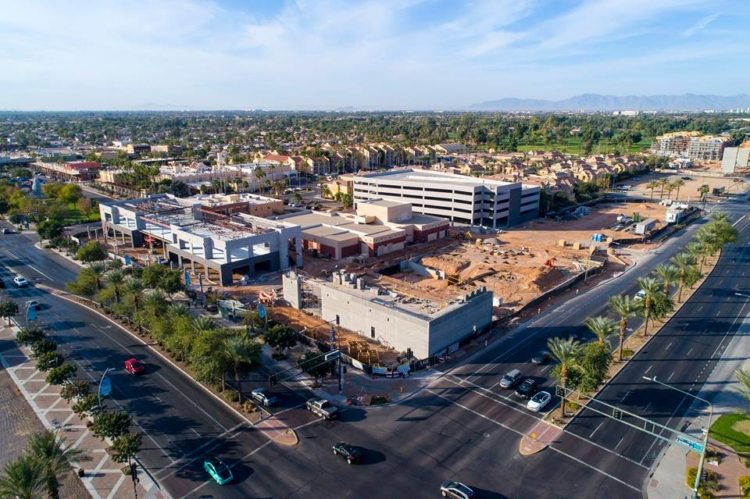This month, Chandler received the No. 1 ranking in WalletHub’s national survey of the best places to find a job in 2018, capping a year of growth for the city and signalling further investment to come.
The report gave 180 U.S. cities a ranking based on 26 indicators sorted between two primary factors, job market and socioeconomics, with job market weighted more heavily. The report favors cities like Chandler, which offer a job market with employment opportunity, industry variety and job security. Socioeconomic factors such as median income and cost of living are also considered.
Chandler ranked No. 3 in job market and No. 9 in socioeconomics. Four of the top five cities in the report were in Arizona.
“We pride ourselves on customer service,” said Chandler Economic Development Director Micah Miranda, referring to the package of advantages that Chandler offers companies interested in moving to the city. Miranda said Chandler’s K-12 education system, low cost of living and opportunities in the technology industry make the city appealing for business development.
Chandler added about 2,000 jobs in 2016, along with nearly $90 million in capital investment, according to Mayor Jay Tibshraeny’s 2017 State of the City address. Tech companies from Intel to Infusionsoft have continued to create jobs and expand their business in Chandler, helping turn the city into a hotbed for innovation and investment.
Intel CEO Brian Krzanich went to the White House in February 2017 to announce a $7 billion extension of its fabrication plant 42 in southeast Chandler. The Fab 42 expansion will reportedly create 3,000 jobs and take advantage of the land available in Chandler away from its downtown area. Construction on the plant began in 2011 but had lain dormant since 2014, when Intel paused work on the plant amid falling computer sales.
Mike Hutchinson, an executive vice president at the East Valley Partnership, called Intel the “poster child” for prospective 2018 job growth in Chandler.
Small business is equally important to Chandler’s growing economy. Local companies like AniCell Biotech, which as an awardee at the 2016 Arizona Innovation Challenge received $250,000 from the Arizona Commerce Authority, can bring desirable jobs in smaller batches.
“Small business job growth has been and will continue to be critically important to the economic vitality of Chandler,” Miranda said. “Early indicators show that 2018 will be no exception.”
The Chandler Innovations incubator is a joint venture supported by the city of Chandler, Arizona State University and NACET, a business development nonprofit organization. Once accepted into the four-part program, local startups are given access to professionals like Tom Fulcher, the incubator’s entrepreneur in residence, as well as lab and research space.
These resources allow small companies to further develop their business model into one they can pitch to investors. Many of the companies will then enter contests like the Innovation Challenge or Invest Southwest’s Venture Madness competition to earn investment opportunities.
Fulcher points to AniCell’s success to show the potential of small businesses to enhance the local economy when they receive the support they need.
“The expectation is that these companies are going to be a part of the East Valley,” he said. “That they are committed to Chandler, because Chandler is making a commitment to them.”
The incubator model helps turn small business ideas like AniCell’s into new local jobs.
The company expects to at least double its staff of 10 researchers and salespeople in 2018, according to AniCell Biotech CEO Brandon Ames. In addition, Ames expects outside investment around $500,000 into AniCell within the year as the company continues to grow.
“Chandler has always been a right-minded place to live and work,” Ames said. “Their foresight is helping to drive jobs, revenue and tax dollars. It’s almost a self-licking ice cream cone.”




